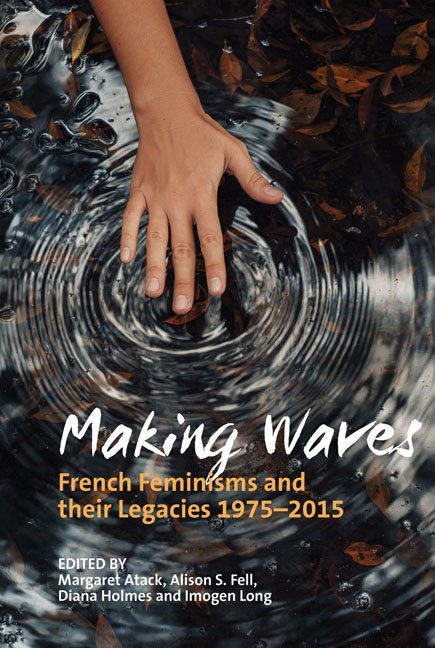Book contents
6 - Parole(s) de Femmes: From Le Torchon brûle to Les Nouvelles News
Summary
In her introduction to Les Femmes qui lisent sont dangereuses (Women who read are dangerous), Laure Adler states:
I believe women have a particular way of loving books, of engaging with reading, of needing books as a source of nourishment and even believing at certain points in their lives that to read is to live. Hence women who read are dangerous. Moreover men will know this only too well and try to hinder, circumscribe and confine women so that they read as little as possible and only works which they themselves have prescribed. (Adler and Bolman, 2006, 15)
What happens, however, when women decide to venture beyond this intimate relationship with the book, not only to write themselves in terms of taking up the pen but also consciously to ‘write themselves’, their world and their desires? By doing so they move into the wider public world of communication and engage with la cite, daring to find their voice. We witness that the text, avidly consumed, erupts into spontaneous combustion, generating women's expression and their entry into the public arena, thereby changing the landscape. This is where ‘le torchon brûle’ – that is to say, where sparks begin to fly and where women ‘make waves’. The notion of ‘women's space’ in terms of occupying their legitimate place in the world and finding womenfriendly venues for feminist activism has been explored by Lucy Delap and Maria McGrath with regard to British and American ventures in particular (Delap, 2016; McGrath, 2016). Broadening the debate, Claire Hancock explores the complex juxtapositions of feminism and ethnic aspects of gender relations in the spatial context of urbanisation and the stigma of the Paris banlieues (Hancock, 2016). It is poignant that the association Femmes en lutte 93 discussed by Hancock highlights in feminist terms the phenomenon of the laisses pour compte (those left behind) in France analysed in Christophe Guilly's La France peripherique (2014). This chapter aims to provide an overview of the period 1975 to 2015, charting shifts in the role, place and space of la parole in feminist activism, framed by the following quotation from Simone de Beauvoir's introduction to Les Femmes s’entetent, which underpins this volume:
Some women believe that current language and logic are universally valid instruments, albeit crafted by men; their problem is purloining the tools.
- Type
- Chapter
- Information
- Making WavesFrench Feminisms and their Legacies 1975–</I>2015, pp. 101 - 114Publisher: Liverpool University PressPrint publication year: 2019

